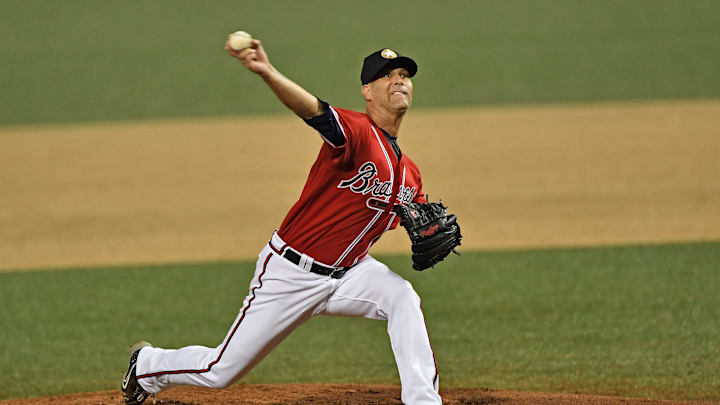Tim Hudson
Finally we come to Tim Hudson who put up quite the career mostly with the Athletics and Braves. He played for 17 years and amassed 222 wins, 57.9 rWAR, a career 3.49 ERA, four top six Cy Young finishes, and three All-Star appearances. He may never have been the best pitcher in the league while he was playing, he was often in the conversation and his extended excellence is rare from pitchers in the modern era.
One reason that Hudson fell off the ballot in his second year of eligibility is that the standard for induction for starting pitchers has been the one standard that has failed to soften much in recent years. Voters look for counting stats milestones like 300 wins and 2,500 strikeouts that are getting more and more rare as pitchers are just managed differently in this day and age. It isn't all that dissimilar to comparing pitchers to the guys that were throwing 300+ innings at the turn of the century while pitching every three days. It is just a different world now.
Should Hudson be in the Hall of Fame? That is uncertain. What we do know is that his career WAR is better than Hall of Famer pitchers Whitey Ford, Sandy Koufax (although he is a special case), Jim Kaat, and Hoyt Wilhelm. Even though Hudson's numbers are borderline to be sure, he should have gotten more consideration than he did. Given how a lot of votes were cast this year, it is hard to understand why he didn't hang around on the ballot at the very least.
